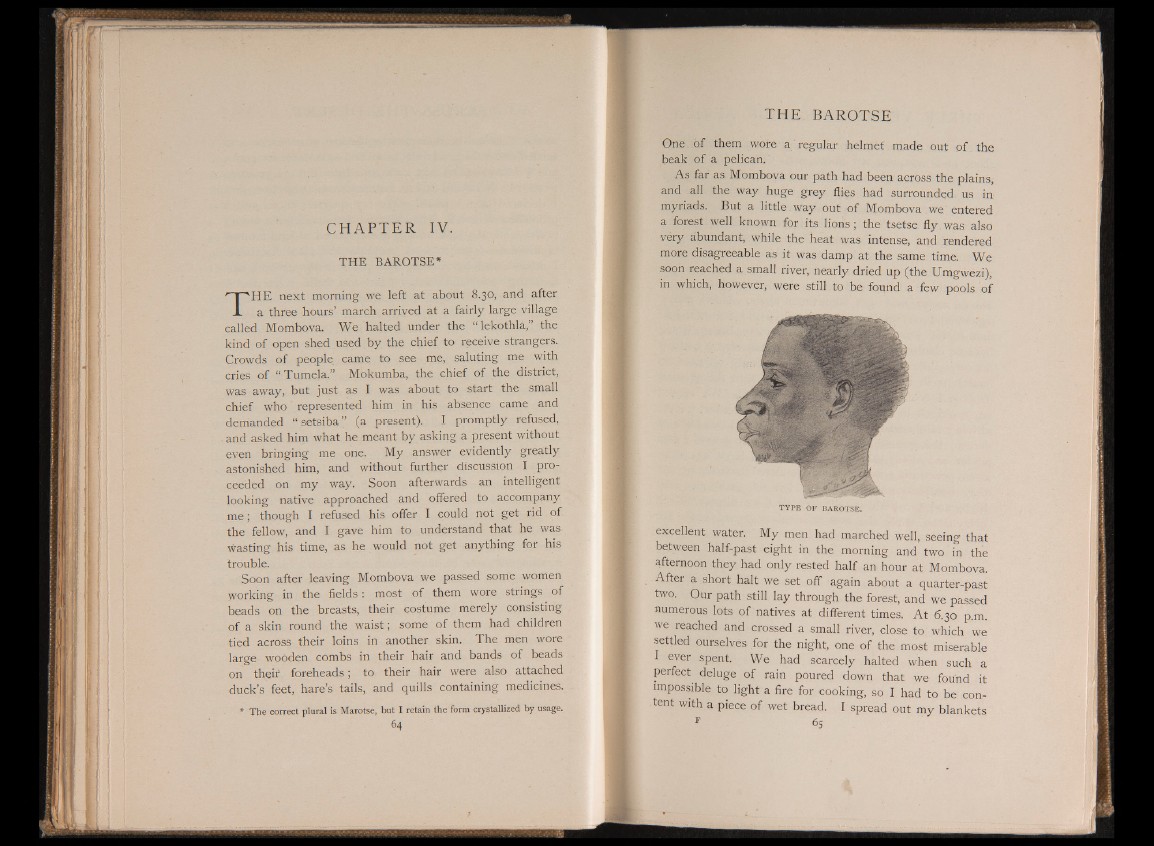
C H A P T E R IV.
THE BAROTSE*
''T 'H E next morning we left at about 8.30, and after
J- a three hours’ march arrived at a fairly large village
called Mombova. We halted under the “ lekothla,” the
kind of open shed used by the chief to receive strangers.
Crowds of people came to see me, saluting me with
cries of “ Tumela.” Mokumba, the chief of the district,
was away, but just as I was about to start the small
chief who represented him in his absence came and
demanded “ setsiba” (a present). I promptly refused,
and asked him what he meant by asking a present without
even bringing me one. My answer evidently greatly
astonished him, and without further discussion I proceeded
on my way. Soon afterwards an intelligent
looking native approached and offered to accompany
me; though I refused his offer I could not get rid of.
the fellow, and I gave him to understand that he was
wasting his time, as he would not get anything for his
trouble.
Soon after leaving Mombova we passed some women
working in the fields : most of them wore strings of
beads on the breasts, their costume merely consisting
of a skin round the waist; some of them had children
tied across their loins in another skin. The men wore
large wooden combs in their hair and bands of beads
on their foreheads; to their hair were also attached
duck’s feet, hare’s tails,, and quills containing medicines.
* The correct plural is Marotse, but I retain the form crystallized by usage.
64
T H E B A R O T S E
One of them wore a regular helmet made out of . the
beak of a pelican.
As far as Mombova our path had been across the plains,
and all the way huge grey flies had surrounded us in
myriads. But a little way out of Mombova we entered
a forest well known for its lions; the tsetse fly.was also
very abundant, while the heat was intense, and rendered
more disagreeable as it was damp at the same time. We
soon reached a small river, nearly dried up (the Umgwezi),
in which, however, were still to be found a few pools of
T Y P E OF BAROTSE.
excellent water. My men had marched well, seeing that
between half-past eight in the morning and two in the
afternoon they had only rested half an hour at Mombova.
After a short halt we set off again about a quarter-past
two. Our path still lay through the forest, and we passed
numerous lots of natives at different times. At 6.30 p.m.
we reached and crossed a small river, close to which we
settled ourselves for the night, one of the most miserable
ever spent. We had scarcely halted when such a
perfect deluge of rain poured down that we found it
impossible to light a fire for cooking, so I had to be content
with a piece of wet bread. I spread out my blankets
F 6S